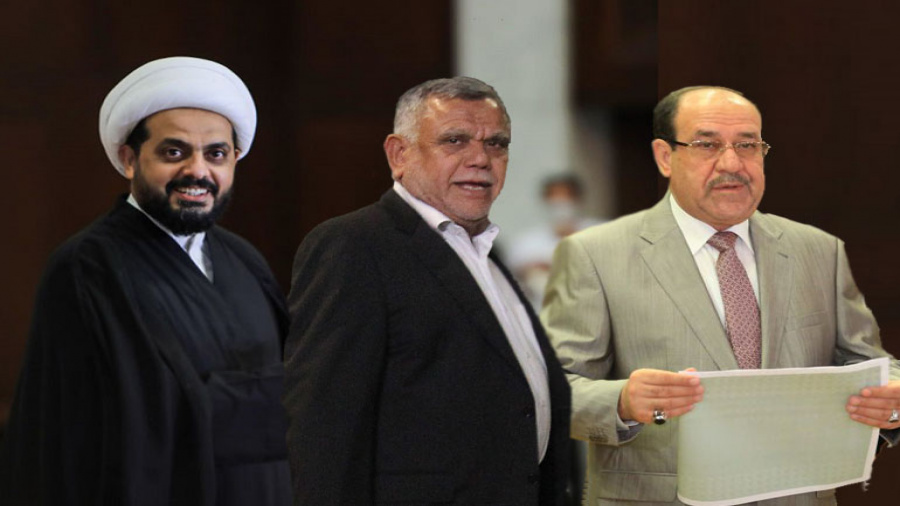He will not visit Al-Hanana.. The coordination framework seeks the largest bloc and puts Al-Sadr in front of two paths
He will not visit Al-Hanana.. The coordination framework seeks the largest bloc and puts Al-Sadr in front of two paths
2022-01-01 04:05
 Shafaq News/ A source from within the coordination framework revealed, on Saturday, political pressures exerted on the leader of the Sadrist movement, Muqtada al-Sadr, to return his movement to the Shiite house and form the next government, while pointing out that the framework is going towards forming the largest bloc with the participation of all.
Shafaq News/ A source from within the coordination framework revealed, on Saturday, political pressures exerted on the leader of the Sadrist movement, Muqtada al-Sadr, to return his movement to the Shiite house and form the next government, while pointing out that the framework is going towards forming the largest bloc with the participation of all.
A leader in the coordination framework told Shafak News Agency, “There is no close meeting that brings together the leaders of the coordination framework with Muqtada al-Sadr, and there are no other meetings in Al-Hanana,” noting that “the next meetings of the leaders of the coordination framework with all political forces will be held in the capital, Baghdad.”
The leader, who asked not to be named, added; “There is political pressure exerted on the leader of the Sadrist movement, Muqtada al-Sadr, to restore his current to the Shiite house and not to leave it again. Sadr has two options, either to participate in the national consensus government or to go to the political opposition from within Parliament.”
And the source added, “The coordinating framework has made up its mind and is going towards forming the largest bloc in the House of Representatives with the participation of all Shiite, Sunni and Kurdish political forces to form a government of national consensus, whether with the participation of the Sadrist movement or without it.”
On Wednesday (December 29, 2021), a delegation representing the coordination framework visited Al-Hanana, the residence of the leader of the Sadrist movement, Muqtada Al-Sadr, to discuss the formation of the next Iraqi government.
The delegation is headed by Hadi al-Amiri, the leader of the “Al-Fateh” coalition, and includes a group of prominent leaders in the coordination framework that includes most of the prominent Shiite forces.
The Sadrist bloc topped the elections with 73 seats out of 329, followed by the Progress Alliance with 37 seats, the State of Law coalition with 33 seats, and the Kurdistan Democratic Party with 31 seats.
The Sadrist bloc seeks to form a majority government in alliance with the Sunni and Kurdish forces that won the elections, contrary to what was customary in previous sessions that witnessed the birth of consensual governments with the participation of all political forces.
However, other Shiite forces within the coordination framework are working to find a foothold in the next government to preserve their gains despite losing many seats in the parliamentary elections that took place last October.
shafaq.com
